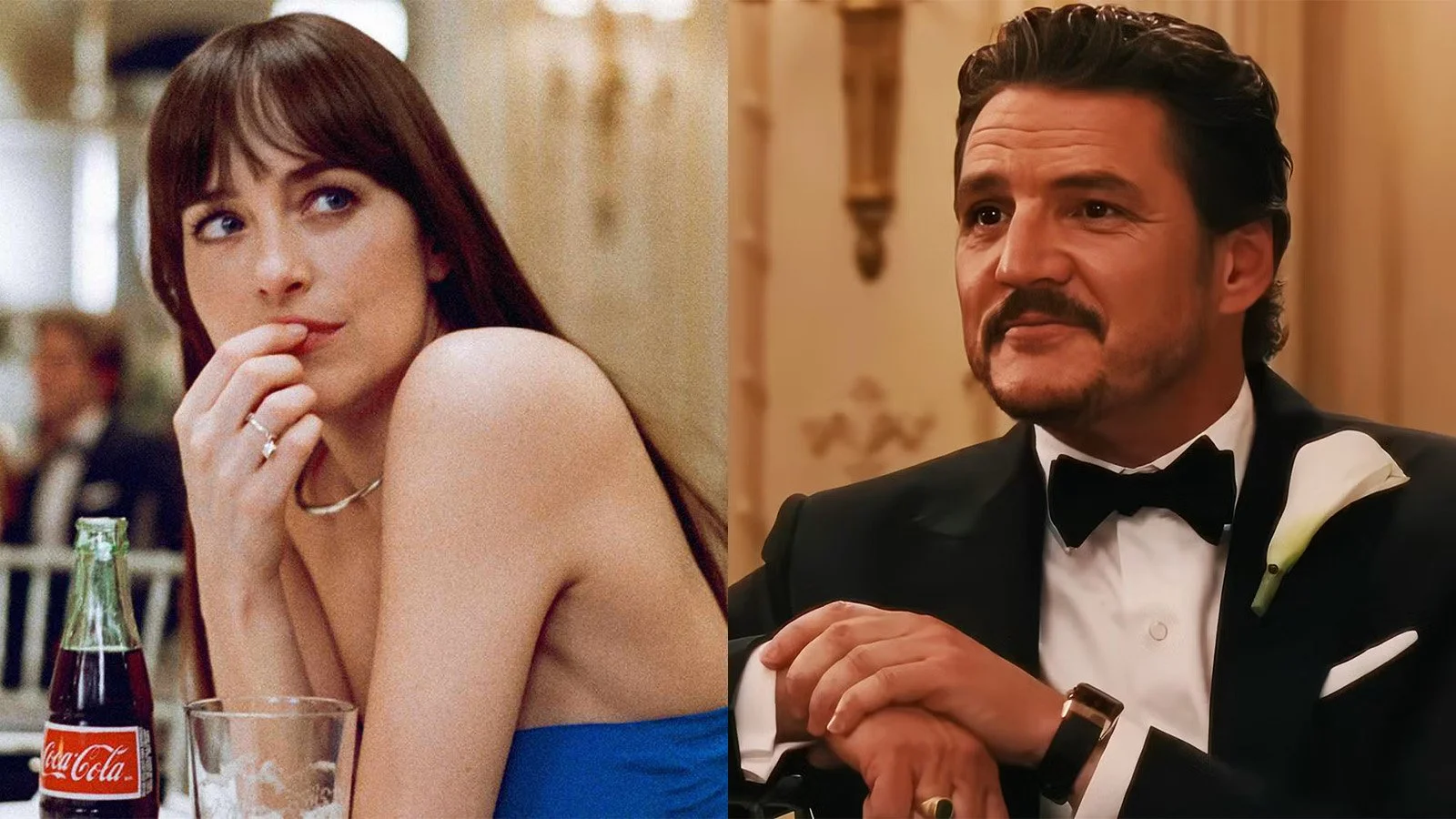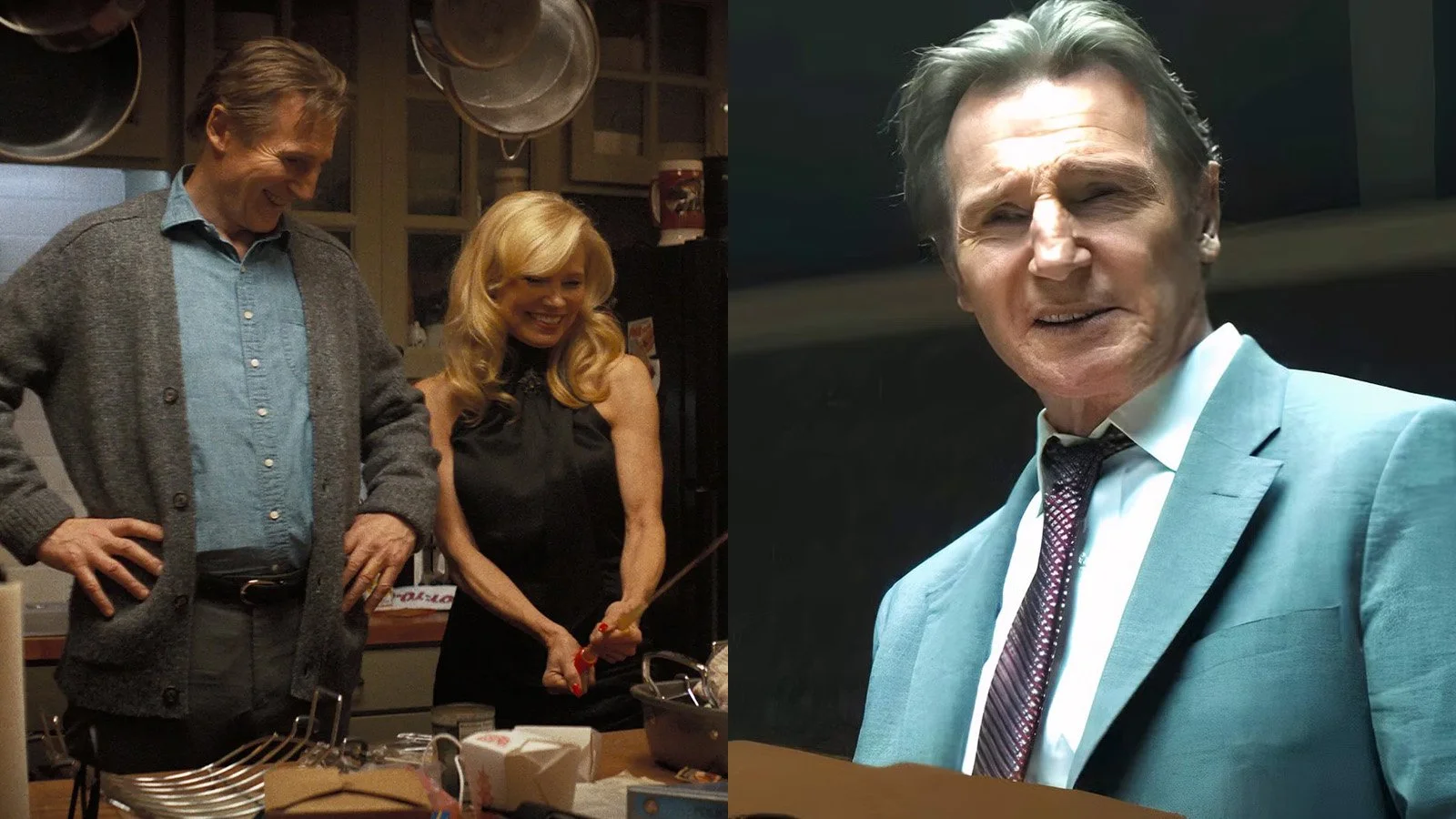Film review: Money or love? ‘Materialists’ has the answer
Celine Song’s Materialists is not the romantic comedy its glossy Y2K-inspired trailer suggests, writes Disha S. Charan for Film News Blitz.
Instead, it reveals itself as a sharp and often unsettling reflection on modern love, where money and status are never far from the conversation.
Rating: ⭐⭐⭐
The rom-drama follows Lucy, played by the incredible Dakota Johnson, who charms the screen with her sophistication and quiet authority.
She works for a matchmaking service that resembles a luxury brand more than a romantic pursuit, with premium memberships for clients seeking connections beyond the online dating world, promising them their one true soulmate.
Dystopian experience
Song delivers the dystopian experience of modern dating inspired by her own experiences as a matchmaker for about six months in her mid-20s while struggling as a playwright in New York City.
She reveals love in the marketplace as a quantified business transaction, where preferences and superficial desires are made to match more than deeply human feelings.
People ask for unconventional preferences that are often unrealistic, searching for the “perfect match” as if they are shopping for clothes.
Complicated characters
Song makes her case by introducing deeply complicated characters.
Through Lucy, we witness a culture that is transactional to the core, where being a catch is directly parallel to self-love in a world where you are only one swipe away from your supposed soulmate.
Enter Harry, Pedro Pascal’s charming finance bro with impeccable well-fitted suits and commanding screen presence with his old-money style aura, and John, Chris Evans’ humble 39-year-old catering waiter living with roommates, whose life is defined by modest means as he delivers a phenomenal performance as a struggling theatre actor.
The contrast is deliberate, and Song ensures that every interaction highlights financial disparity and class division as the unspoken third character in their relationships.
Lucy is initially drawn to Harry’s perfection and the security he offers, fitting her own hedonistic, boss-girl persona.
Hidden vulnerability
Yet what makes him human is not his wealth but his hidden vulnerability, revealed in an unexpected twist about his insecurities that was subtly foreshadowed and one I did not see coming.
When Lucy ultimately gravitates back to John, the man she once left behind for being broke, the film underscores its central message: that love thrives beyond greed and ambition, even when reality is far less glamorous than one would hope for.
John brings warmth and tenderness as the safe space Lucy seeks, with his monologue about seeing her future etched in wrinkles and children leaving a lasting impact.
Character dynamics
This raises a question: would the story be treated differently if the character dynamics were reversed? If Lucy were the broke theatre actor and John the wealthy man, would the film still be considered unconventional?
The question lingers, and it reflects my admiration for Song’s ability to navigate human complexity.
READ MORE: ‘The Naked Gun’ review: Liam Neeson delivers a barrel-load of laughs
She etches her vision into the raw ethos of society, showing her humanistic approach to storytelling with striking clarity.
However, while Lucy clings to her idealistic standards, I would argue that themes of emotional cheating and a lack of development in her character arc remain.
She contradicts herself, returning to John after constantly treating love as a business deal.
Relatable choices
Still, her choices feel relatable and deeply human. Song successfully conveys that no matter how good a person may appear on paper, human feelings and emotions ultimately triumph.
We see this too when Lucy is emotionally shaken after hearing one of her client’s assault incidents, flipping back through pages of compatibility preferences, hoping to discover what she may have missed.
It is Song’s clever way of showing how human intentions and emotions slip through the cracks of a textbook system built on descriptive traits.
In the end, Lucy’s choice to let go of her Mr. Perfect, Harry, symbolises her final surrender to her feelings for John, who embodies the rawness, comfort and humility required for love.
READ NEXT: Film news: Joaquin Phoenix and Pedro Pascal star in Ari Aster’s unsettling Western drama ‘Eddington’


